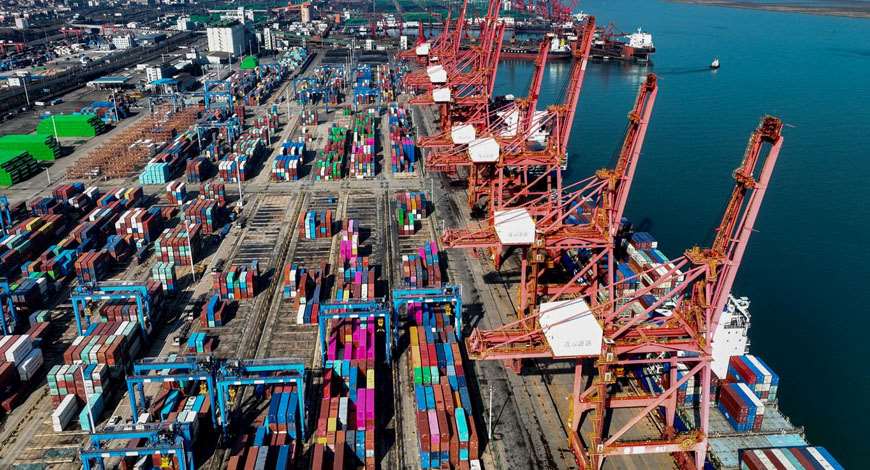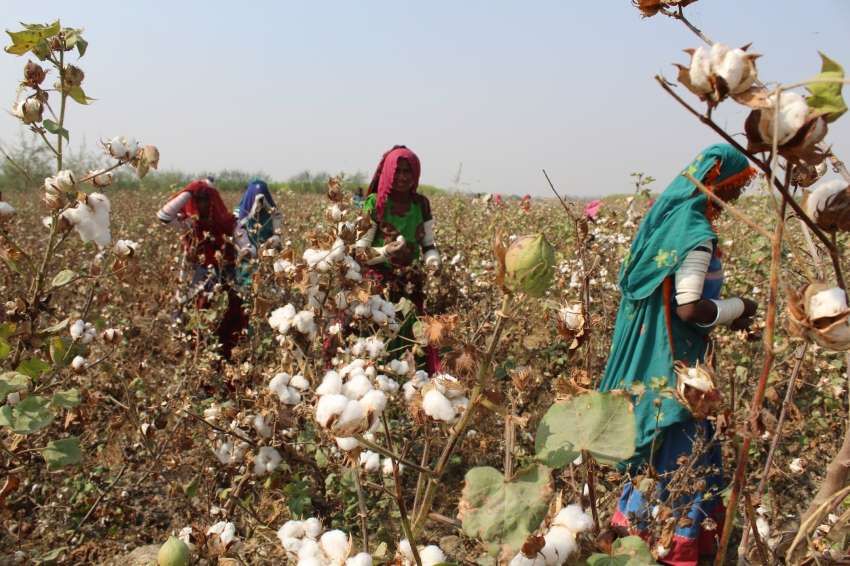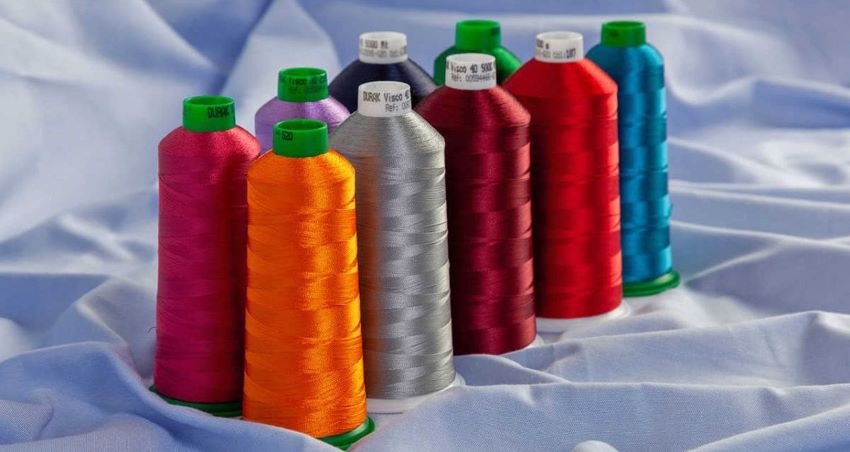FW
US imports of synthetic apparel this year have overtaken cotton garments for the first time in decades. Fears cotton is losing the battle to manmade fibers have come true. Of 19.43 billion sq. mt. equivalents (sme) of apparel shipped to the United States through September, 9.87 billion was clothing made primarily of synthetic fibers like polyester and viscose. Some 9.16 billion sq. sme was made primarily of cotton.
It’s the first time since 1991 that cotton apparel imports in the world’s largest market were lower than those made of synthetic fibers. Volumes of cotton apparel imported during the first nine months of the year were down two per cent from the same period in 2013, even as overall apparel import demand rose. Synthetic imports were up nearly 9 per cent from September 2013.
Yarn mills have switched spindles to polyester and it’s like due to years of high cotton prices and improving synthetic technology. Falling polyester prices have dashed hopes that lower cotton prices will renew demand. Cotton prices have plunged 30 per cent year-to-date. Global cotton stocks are ballooning. World inventories are expected to reach a whopping amount by the end of July 2015, enough to satisfy demand for nearly a full year.
A seminar on denim will be held on November 12 and 13 in Mexico. Various aspects of denim fabric and jeans and other denim garment manufacturing, technical fashion trends and commercial will be discussed. Among the topics are high tech washes, denim finishing, problems in jeans manufacturing, denim for the 21st century, fabric management and retail trends in Mexico and Canada.
Panel speakers will include senior executives from denim companies, denim professionals, global suppliers of fibers, fabrics, chemicals, machinery. Attendees will include retailers, apparel brands, representatives from denim mills, jeans manufacturers and others in the denim supply chain.
Global companies will talk about state-of-the-art technologies in fibers, textiles, fabrics and garment finishes. The seminar will have an exhibition of fabrics and supplies for apparel manufacturers. It will showcase Spring/Summer ’15 trends and the latest market trends in jeans consumption for the retail market.
Mexico is popular with garment firms because it is close to the United States, meaning a quick turnaround on fast-changing fashion lines. Jeans factories have given jobs to thousands in the city of Tehuacan, the heartland of Mexico's denim industry. The country's sizable and youthful population makes Mexico a prime target for retail brands favored by the young.
Some brands like Benetton have not money into a UN compensation fund for Bangladeshi garment workers injured in a building collapse that killed more than 1,000 of their colleagues. Instead Benetton has teamed up with a Bangladeshi NGO, with a separate scheme that it says provides assistance to 280 victims, first, with their immediate medical needs, then with a long-term set of activities designed to support their long-term needs. Benetton is among the 27 global brands whose garments were being manufactured in the building.
The Rana Plaza factory complex in Dhaka’s suburb collapsed on April 24 2013. Many of those who died were producing clothes for sale in western stores. Nearly all those who died or injured were garment workers. Many had been ordered back into the unsafe building by factory owners despite the building being evacuated the day before when giant cracks appeared in the walls.
This led over 150 companies to sign the Accord on Fire and Safety in Bangladesh, a legally binding and independent agreement designed to make all garment factories in Bangladesh safe workplaces. Benetton says it’s one of the first signatories to the accord. Other companies, such as Primark, which has contributed $1 million to the fund in addition to distributing $2 million through its own short-term assistance program, have been praised for their proactive approach. But the general feeling is that no brand has really made a significant contribution.
China will subsidise its cotton-growing farmers. The aim is to prevent a fall in cotton production and to curb demand for imports. The country has abandoned its stock piling program that had reduced supply to the market and bolstered global prices. An end to buying and the switch to subsidies has seen US prices drop over market fears of weaker demand from China amid plentiful global supplies.
Cotton growing in China has already declined significantly in provinces outside Xinjiang in recent years as farmers seek higher wages in cities or turn to less labor-intensive crops such as wheat. China’s total cotton acreage declined nearly 7 per cent in 2013 from the year before. The country’s cotton imports in 2014-15 are expected to fall to a 10-year low of 1.3 million tons, less than half the previous year’s total.
China views the financial support of its 700 million farmers as crucial for both its food supply and political stability, particularly in regions with large ethnic minorities such as Xinjiang. The country still holds nearly 12 million tons of fiber in state reserves. That is around 60 per cent of global stocks.
Beijing is determined to keep cotton output in Xinjiang at stable levels as it seeks to turn the province into a major textile hub, attracting more garment makers to boost local employment.
The international exhibition on textile industry that showcases the latest spinning and weaving technology for organic textile production, Shanghai Tex, will take place from June 15 to 18, 2015. Focusing on automated textile technology applications in different areas, Shanghai Tex 2015 will be the showcase of the world’s most innovative textile machinery. It will present the latest developments in textile technology for the fashion and apparel industry as well as footwear, functional wear, interior auto parts, medical care, health protection, agriculture, construction and other sectors.
Shanghai Tex 2015 is divided into seven exhibiting sections. These are knitting and hosiery, digital printing, dyeing and finishing machinery and textile chemicals, spinning and weaving and spare parts and accessories. The last edition of Shanghai Tex 2013, covered an exhibiting area of 1,03,500 sq. mt. and featured more than 1,000 leading international exhibitors from 25 countries including four international pavilions from Italy, Germany, Korea and Taiwan that showcased numerous top-notch textile machines, technologies and materials.
There is a growing demand for organic clothing in China, especially on underwear, sleepwear, infant and maternity clothing. Organic cotton production is an important part of sustainable development. It is significant in protecting the ecosystem, promoting human health development and meeting consumer needs.
www.chinaexhibition.com › China Trade Shows Calendar
World exports of textiles and clothing increased by 8 per cent year-on-year in 2013, about four times higher than the average growth rate of 2 per cent reveals the International Trade Statistics 2014, released by the World Trade Organization last week. Positive growth was recorded by all top 10 textiles and apparel exporting countries including China, EU28, India, Turkey, Bangladesh, Vietnam, the US, South Korea, Pakistan and Indonesia. Among the top 10, the highest growth in textiles and garment exports was registered by India, with 23 per cent, while South Korea recorded the lowest growth rate of 2 per cent.
Compared to 2012, Vietnam overtook the United States as the sixth-largest exporter of textiles and clothing in 2013, while all other nations saw their positions unchanged. China continued to be the leading exporter of textiles and clothing, with a 39 per cent share in world exports of clothing and 35 per cent share in textiles in 2013. The European Union was the largest importer of clothing, accounting for 38 per cent of world textiles and garment imports in 2013, followed by the United States with 19 per cent of world imports.
The value of global textiles and clothing exports in 2013 stood at $766 billion, with China alone accounting for $284 billion, followed by the EU and India with $190.2 billion and $35.7 billion, respectively. About 59.8 per cent of the world textile exports originated in Asia, with China alone accounting for 34.8 per cent share. Europe recorded 28.1 per cent share, whereas the North American region supplied 6 per cent of textiles to other regions.
Similarly, in global clothing exports, Asia contributed a share with 59.4 per cent, followed by Europe with 29.7 per cent, and the South and Central American region with 3.2 per cent.
www.wto.org
Pakistan's textile mills are alarmed over rising imports of finer counts yarn (above 30 counts) at cheaper rates from India. The government has allowed the state-owned Trading Corporation of Pakistan (TCP) to procure one million cotton bales to help growers get a better price for their produce.
Mills say the TCP should not be allowed to intervene in the free market mechanism being followed in the cotton economy for the last 18 years. They say this would lead to huge losses to the national exchequer because cotton prices the world over are depressed this season.
However there is a view that the TCP’s intervention can help cotton growers get a better price. It will encourage the spinning industry to go in for less expensive cotton from India. Even if the landed cost of imported cotton from India comes to around Rs 5,400 it would be cheaper. It would be contamination-free and will also have no storage cost, which will have to be incurred for domestic cotton.
India is harvesting a bumper cotton crop this season which could touch 40 million bales, the highest in world production followed by China. There was a time when China was a major buyer of cotton. However, for the last couple of years, China is buying only quality lint. The country is presently supplying cotton to its industry from domestic stocks accumulated since 2009.
China is helping Pakistan set up cotton spinning mills. These mills would come up in the industrial estate of Faisalabad and consist of 6,00,000 spindles, generating thousands of jobs. Faisalabad is the textile hub of the country.
The work is undertaken by Shandong Ruyi, one of the largest textile conglomerates in China. And this is the highest Chinese investment in the textile sector of Pakistan. They are making payments in three installments. The first will cover 10 per cent of the total amount, while the second will cover 40 per cent and 50 per cent will be covered in the third. The construction of buildings, residential apartments and boundary walls has begun. Two coal-based power plants have been installed in the industrial estate to facilitate the energy requirements of the companies.
Huge Chinese investments are expected in the industrial estate in the near future. Infrastructural and construction machineries dispatched from China will arrive in Faisalabad in a few days. The Chinese are losing their competitive edge in their home country because of high wages – almost six times higher than in Pakistan – which gives them more incentive to invest elsewhere.
www.chinaruyi.com/doce/about/about.asp
Pakistan is taking steps to raise its cotton to international standards. The country also wants to increase its textile exports. Numerous initiatives have been taken up to ensure the development, production and preservation of better quality cotton in the country. Research institutes have developed some varieties with over 30 mm staple length. Provincial governments have been instructed to ensure standardization and grading of cotton according to international standards.
However, the problem is that long varieties carry a premium, which buyers may not be willing to pay. The government has approved a textiles package in the Budget 2014-15. This comprises several important initiatives like drawback for local taxes. Levies would be given to exporters of textile products on values of their enhanced exports on an incremental basis if increased beyond 10 per cent over the previous year‘s exports. Also, there is a provision for duty free import of textile machinery for two years.
Textile units in the value added sector would be provided long term financing facility for upgradation of technology from the State Bank of Pakistan at 9 per cent rate for a duration of three to ten years. Easy finance mark up rate for the export refinance scheme of the State Bank of Pakistan has been reduced from 9.4 per cent to 7.5 per cent from July 2014.
Apparel exporters in Bangladesh find production and shipment are being affected by the activities of the Jamaat-e-Islami. They are protesting the death sentence awarded by the International Crimes Tribunal to its leader Mir Quasem Ali for committing crimes against humanity during the 1971 Liberation War. They have called for nationwide general strikes.
The strikes being enforced by the Jamaat are hampering production at factories as well as transport of commodities to the port. Exporters fear they can’t make shipments in time for Christmas and that buyers will reduce the volume of orders. The strikes have taken place at a time when a good number of buyers are coming back to Bangladesh. They had shifted their business in the last year due to political instability and after the setback following the Rana Plaza building collapse.
The feeling is that growth of export earnings from readymade garments in the first half of the current financial year will be negative due to the ongoing general strikes. Exporters say that considering the well-being of the national economy political parties should apply alternative ways of protest and the government should protect the export-oriented sector from all kinds of interruption. <br/>












